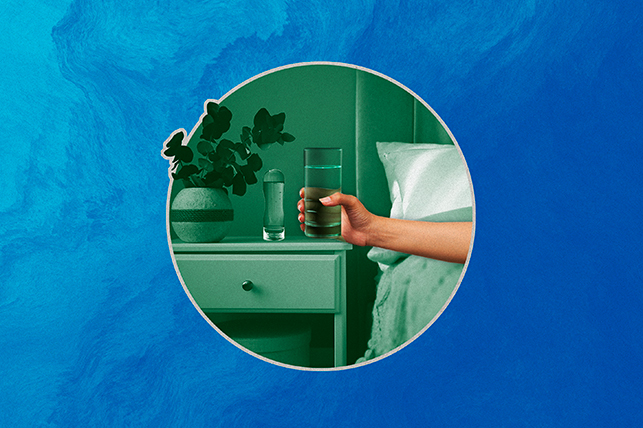Is Fluoride in Water Bad? Spoiler Alert: Too Little is Harmful

Key Points
- A distrust of scientific and civic institutions has contributed to a rising tide of misinformation about the health effects of fluoride.
- Opponents of fluoridation are angling to remove it from public drinking water sources in the United States.
- Multiple health organizations support keeping fluoride in drinking water, citing its proven benefits and limited risk.
If you love carbohydrates, new and potentially dangerous misinformation regarding fluoride could affect your dental health. That's not all a lack of fluoride could affect in a startling wave of false information.
Is fluoride in drinking water bad?
Fluoride, one of the most abundant elements in the earth's crust, is found naturally in air and most water sources. However, naturally occurring levels aren't typically sufficient to prevent cavities.
This is why countries worldwide add fluoride to drinking water.
Rumors about the perils of public water fluoridation began swirling shortly before municipalities implemented the practice, according to the Science History Institute. Grand Rapids, Michigan, became the first in late January 1945, inspiring a global movement.
However, in the weeks before, some citizens complained of dental issues, such as aching gums, which they attributed to the new policy. The complainants mistakenly believed water fluoridation had already started earlier that month.
The U.S. federal government has recommended public water fluoridation since 1950. Organizations like the World Health Organization (WHO) and the Centers for Disease Control and Prevention (CDC) have called it one of the greatest public health accomplishments of the 21st century.
Why would anyone remove fluoride from drinking water?
Misinformation about the health effects of fluoride have continued to circulate over the decades. Much like the kind seen in women's health on TikTok, some experts say false information about fluoride could be a significant detriment to public health.
In late 2024, Robert F. Kennedy Jr., President-elect Donald Trump's newly appointed health secretary, claimed on the social media platform X the mineral is associated with arthritis, bone cancer, neurodevelopmental disorders, IQ loss and thyroid disease.
Fluoride, like iron or calcium, can be detrimental in excess. However, this is not typical for the amount found in U.S. drinking water.
The levels found in drinking water in the U.S. are far below the threshold for potential harm, according to the CDC and the U.S. Environmental Protection Agency (EPA).
Where do higher levels of fluoride actually occur?
Most adverse effects from fluoride occur in warm areas where drinking water naturally contains levels more than twice found in tap water, and water consumption is higher, according to the WHO.
The maximum allowable amount of fluoride in public water sources is 4.0 mg/L, per the EPA standard. According to WHO, if someone were to consume more than this amount over a long period, it could eventually lead to skeletal fluorosis or a buildup of fluoride in the bones which may cause pain, stiffness and increased fracture risk.
In recommended amounts, fluoride in public water supplies reduces cavities or tooth decay by roughly 25 percent, according to the CDC.
The EPA has also set a secondary guideline suggesting municipalities don't exceed 2.0 mg/L maximum. This is to protect children from dental fluorosis, which can cause permanent white stains or pits in the teeth.
Dental fluorosis is mostly a cosmetic issue, suggested the American Dental Association (ADA).
The federal government in 2015 lowered the recommended levels from 1.2 mg/L to 0.7 mg/L, noting water fluoridation is now less necessary due to the widespread use of products like fluoridated toothpaste.
What does fluoride do?
Sugars, plaque and harmful bacteria in the mouth produce acid which can take minerals from enamel—the tooth's protective outer layer. Enamel can also regain minerals, including fluoride and calcium, when you consume them through food or drink.
Cavities occur when your teeth lose more minerals than they gain.
Fluoride helps strengthen tooth enamel and replace lost minerals, reducing the risk of tooth decay. Fluoride can also reverse early decay and stimulate new bone formation.
In recommended amounts, fluoride in public water supplies reduces cavities or tooth decay by roughly 25 percent, according to the CDC.
Although people can get fluoride from multiple sources, including toothpaste, water is most people's primary source of the element. Proponents cite its proven benefits and say it is especially crucial for people, including children, who don't have access to regular dental care.
Recommended
- Yes, Dentists Can Tell If You've Recently Given Head: Does a dentist know if you've given oral sex? One TikTok goes viral with the answer.
- Sink Your Teeth Into This: Regular Dental Care May Help Erections: Studies indicate an indirect but important relationship between gum disease and ED.
- Why Does My Throat Hurt After Oral Sex?: Throat irritation after oral sex may be the first sign you have an STI.
What does science say about fluoride?
The CDC, ADA, American Academy of Pediatrics (AAP) and other major health organizations attest how fluoride levels found in drinking water are safe and effective for dental health, and stress it is one of the nation's most important public health tools.
Still, controversy abounds, even within the scientific community.
Multiple systematic reviews and meta-analyses over the decades have not established a clear link between fluoride and cancer, according to the American Cancer Society.
While a February 2024 systematic review and meta-analysis concluded fluoride may increase thyroid hormone release in children and "non-linearly affect thyroid function," those findings are over double the amount in the tap water here in the U.S.
Many developed countries, including most in the European Union, don't fluoridate their water, although some choose alternatives, such as fluoridated salt, indicated a 2018 review. The authors said, given fluoride's benefits are mainly topical, it may be better to rely on products like fluoridated toothpaste since it's difficult to control dosage when ingested.
Additionally, earlier in 2024, the toxicology program at the National Institutes of Health (NIH) published a report stating "with moderate confidence" they had found a link between high fluoride intake and low IQ in children.
Notably, the research doesn't establish cause and effect.
Also, the studies reviewed by NIH researchers took place in places like India, where drinking water naturally tends to have fluoride levels roughly twice the recommended limit for drinking water in the United States.
Organizations, including the AAP, have questioned the NIH report's validity and doubled down on their stance that evidence suggests fluoride is safe at the levels found in public drinking water.
What could happen if fluoride is removed from our drinking water?
The rise of social media and distrust in scientific and civil institutions has propelled the controversy around fluoride to the forefront. We have seen this before with myths about birth control and endless rumors about COVID-19.
Currently, about three in four Americans receive fluoridated water through the tap, which means if it's removed, millions of people could be at higher risk of tooth decay, shared the CDC.
Children aged 5 to 19 years from low-income families are twice as likely to have cavities than those from higher-income households.
Cavities can be painful, but untreated tooth decay can lead to serious complications, including infections and tooth loss. Additionally, dental infections can affect other parts of the body, potentially contributing to issues such as heart disease.
In children, untreated cavities and resulting pain and infections may interfere with speaking, playing, eating and learning.
The bottom line
Social media gets sexual health wrong, sometimes shockingly so. Web-based social networks may not be the place to find reliable information on fluoride, either.
More research is needed to investigate fluoride's potential pitfalls and benefits, but reliable evidence suggests it is safe in the levels found in the U.S.
If you're concerned about you or your child getting too much or too little fluoride, talk to your dentist.


















